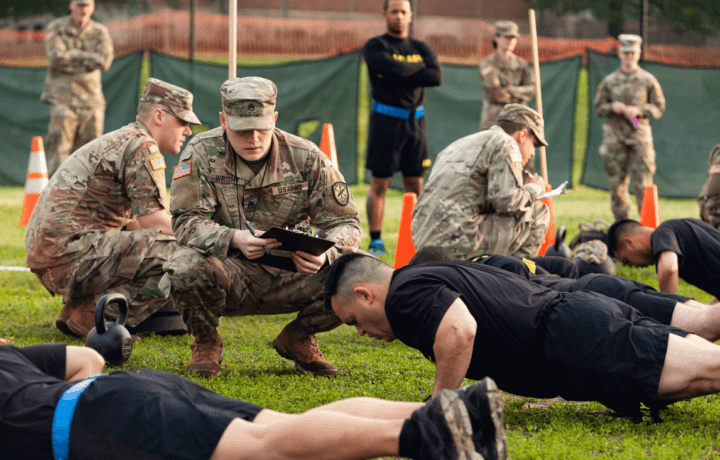Army Secretary Ryan McCarthy may not be able to run with the Army Combat Fitness Test (ACFT) until an independent entity completes further study, according to the Senate’s defense funding bill. The Senate Armed Services Committee’s draft of the 2021 National Defense Authorization Act funds the military, starting October 2020, which is when the ACFT is slated to begin. With the NDAA as the Army’ source of funding, this could create another hurdle to implementation.
Delay Is Not An Option for the ACFT
Despite the committee’s concerns, the Army does not plan to delay the transition from the Army Physical Fitness Test to the ACFT. The Army has fielded questions from soldiers in a Facebook virtual town hall meeting in order to put them at ease and continue training for the test. Testing for the ACFT is scheduled for October 1, despite COVID-19 and funding bill provisions. Instead of delaying, the Army has adjusted the impact of results on its soldiers.
CoVID-19 Impact
COVID-19 delays to training have been met with a grace period for additional training. Testing still needs to happen; however, more modifications have been put in place and potential career impacts are currently off the table with scores not counting until March 2022. Without data, the Army cannot begin to measure the effectiveness or suitability of the test. Until results start to come in, the conversation is just a host of hypothetical situations and concerns.
Pushback
The pushback on the Army has been steady. Opponents have argued against cost, training availability, and gender equality in the demands of the test. The pandemic has also created a setback on the accessibility of training facilities, and it has slowed down the progression of training courses for leaders. The Army has responded accordingly with exercise modifications and delaying the timeline for final score submissions.
Goal of the ACFT
The Army has stated that the ACFT improves soldier and unit readiness, reduces injuries, and increases mental stamina. However, when physical fitness is linked to job promotion, it is understandable that fairness and equality become a concern. Specifically, concern over the leg tuck has been high. While the plank replacement is doable, it isn’t a permanent supplement. Scoring standards for the test are structured based on the physical demands of the position.
Marching on with Data Collection
It’s a smart move by the Army to march on with data collection. Without results from its soldiers, the Army is fighting back without a real argument. With a soft start to the ACFT, it should allow the Army to implement the changes without experiencing an actual stab at their budget by Congress. Experts can weigh in, but with mapping exercises to job demands, the Army is able to update its antiquated test to match the job requirements. While we don’t want anyone to be at a disadvantage, it is clear that the old method of testing does not provide a true picture of an individual’s combat readiness.




